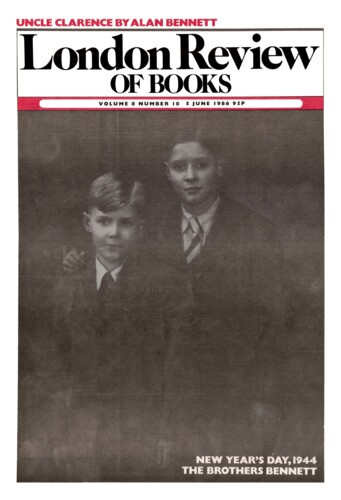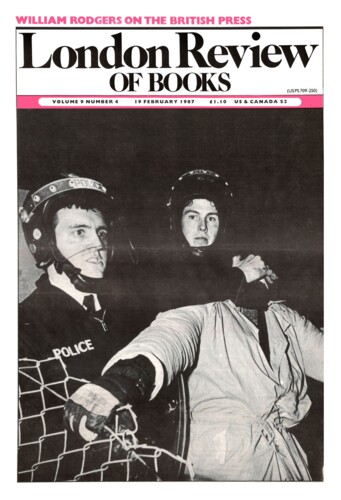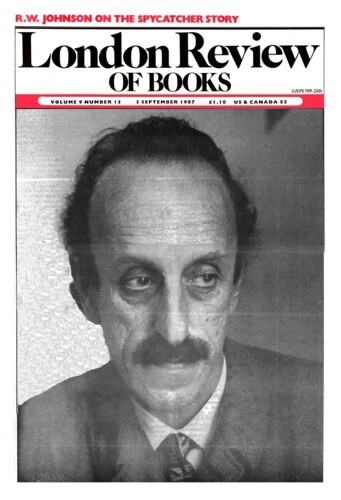Grand Theories
W.G. Runciman, 17 October 1985
What is a ‘Grand’ as opposed to a ‘General’ theory, in the human sciences or anywhere else? Nobody talks about Keynes’s Grand Theory of Employment, Interest and Money, any more than they do about Einstein’s Grand Theory of Relativity. If not frankly pejorative, the term is at best ironic, implying a loftiness of tone, an inflation of aim, and a pretentiousness of content which no serious academic author could possibly want to be charged with. Professor Skinner begins his Introduction by quoting from a celebrated attack on Talcott Parsons by C. Wright Mills, for whom Grand Theory was the most absurd but also the most serious impediment in the way of a sensible, informed and humane understanding of human societies. So one supposes that what is to follow is a carefully mounted assault on what the chosen contributors see as a regrettable revival of the Higher Bogus. But not at all. They, and he, seem if anything to welcome it.




